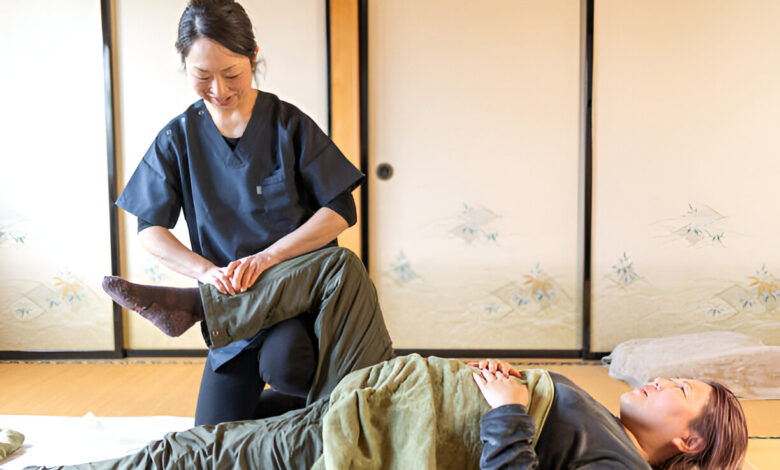The Role of Reiki in Supporting Holistic Healing Practices

In the world of healing practices, many individuals are turning toward holistic approaches that focus on treating the whole person’s mind, body, and spirit rather than just the symptoms of an ailment. Among these practices, Reiki has emerged as a powerful tool that supports overall well-being. Rooted in Japanese traditions, Reiki promotes healing through energy transfer, helping to restore balance and remove blockages within the body’s energy systems. But how does Reiki fit into the broader scope of holistic healing, and why is it becoming an essential part of modern wellness routines?
What Are Holistic
Holistic healing practices emphasize treating the individual as a whole rather than focusing solely on physical symptoms. These practices combine physical, emotional, mental, and spiritual health, recognizing that imbalances in one area can affect the entire system. Techniques like acupuncture, meditation, yoga, and herbal medicine are just a few examples of holistic approaches. Healing practices aim to support the body’s natural ability to heal itself by addressing the root causes of illness and fostering an environment of wellness and balance.
Reiki, as a holistic healing modality, falls squarely within this framework. Its focus on energy transfer complements the body’s healing processes and aligns with the broader goals of holistic health, offering benefits that go beyond the physical. Practitioners of Reiki often view it as a form of energetic medicine, working to align the body’s energy fields to improve both emotional and physical well-being.
Role of Reiki
Reiki, which translates to “universal life energy,” is based on the principle that energy flows through all living things. When this energy is blocked or disrupted, it can manifest as physical illness or emotional distress. Reiki seeks to restore the natural flow of energy, enabling the body to heal itself.
Unlike some other healing practices that require active participation, Reiki is a passive practice for the recipient. During a session, a practitioner channels energy through their hands, either hovering over or lightly touching the person’s body, to balance and clear energy blockages. This non-invasive technique is gentle yet powerful, making it an ideal complement to other holistic approaches.
Reiki can support emotional healing by helping individuals release stress and anxiety. Many who integrate Reiki into their healing practices report feeling more centered, grounded, and at peace. It also offers physical benefits, from improved sleep to relief from pain and chronic conditions. These wide-ranging advantages make Reiki a versatile tool that can enhance many different holistic therapies.
Reiki and Emotional Healing
Emotional health plays a crucial role in holistic healing. Negative emotions, stress, and unresolved trauma can create energetic blockages in the body, leading to physical and mental discomfort. Reiki practitioners believe that clearing these blockages through energy work can help restore emotional balance, leading to a sense of inner peace and emotional resilience.
When incorporated into healing practices, Reiki can act as a powerful emotional detox. It helps individuals process difficult emotions, release old patterns, and cultivate a more positive mindset. For those undergoing stress-related issues, such as anxiety or depression, Reiki offers a gentle yet effective method of support. It complements practices like meditation, counseling, or even talk therapy, by providing a space where energy flows freely and emotional healing is encouraged.
Physical Healing and the Role of Reiki
While Reiki is often associated with emotional and spiritual healing, it can also play a significant role in physical recovery. Many individuals use Reiki to complement medical treatments for various conditions, from chronic pain and fatigue to injury recovery. By promoting relaxation and reducing stress, Reiki helps the body shift into a state conducive to healing.
Holistic healing practices recognize the connection between the mind and body, and Reiki supports this by addressing energy imbalances that may be contributing to physical ailments. For example, many people find relief from migraines, digestive issues, and muscle tension after receiving Reiki. Although it is not a replacement for traditional medical treatment, Reiki works alongside other healing modalities to promote overall wellness.
For those seeking to explore Reiki’s physical benefits, it’s easy to Book a Reiki session with a certified practitioner who can guide the process and tailor it to your individual needs.
Reiki in Combination with Other Healing Practices
Reiki is often combined with other holistic therapies to create a more comprehensive healing experience. Many holistic health centers offer Reiki in tandem with acupuncture, massage, or aromatherapy, understanding that energy work can amplify the effects of these other modalities. For instance, pairing Reiki with yoga or meditation can deepen relaxation and foster a deeper connection to the self, while using it alongside acupuncture can enhance the flow of life energy (Qi) throughout the body.
Because Reiki does not interfere with other forms of treatment, it is an excellent addition to any healing regimen. People who have undergone surgery, are recovering from trauma, or are battling chronic illnesses often find that adding Reiki to their routine promotes faster recovery and a greater sense of well-being. This flexibility makes Reiki a valuable asset in a variety of healing practices.
Moreover, Reiki can now be accessed virtually through Reiki Healing Online, allowing people from all over the world to benefit from this practice without being physically present with a practitioner. This makes it even more convenient for individuals seeking to incorporate energy healing into their daily lives.
Reiki and Spiritual Connection in Healing
In holistic healing, the spiritual dimension is just as important as the physical and emotional aspects. Reiki taps into this spiritual component, allowing individuals to connect with their inner selves and the universal energy that surrounds them. While Reiki is not a religion, it is deeply spiritual and offers individuals a way to strengthen their connection to something greater than themselves.
For those on a spiritual journey, Reiki can enhance personal growth and foster a deeper understanding of life’s challenges. Many people report feeling more spiritually connected and aligned with their purpose after integrating Reiki into their healing practices. This spiritual aspect complements other modalities like meditation, mindfulness, or even prayer, offering a holistic approach to self-care and personal development.
Conclusion
Reiki’s role in healing practices is both profound and versatile. As a gentle yet powerful form of energy healing, Reiki complements various holistic therapies by promoting balance, reducing stress, and supporting the body’s natural healing process. Whether used for emotional, physical, or spiritual healing, Reiki offers a pathway to deeper well-being and can be a valuable addition to any holistic healing journey.
With the increasing popularity of Reiki, many individuals are exploring its benefits alongside other modalities. If you’re curious about how Reiki can enhance your holistic health routine, consider Reiki Healing Online as an accessible way to experience this energy healing practice, no matter where you are.




